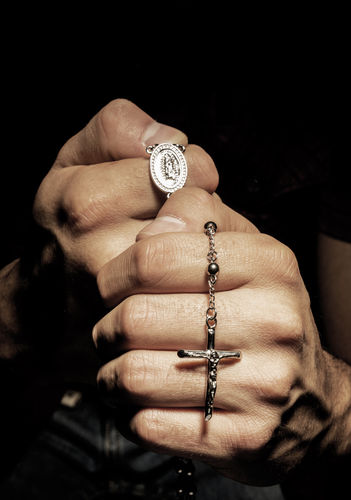The so-called New Atheism has its passionate preachers, many of whom were Christians once upon a time. These ex-believers all have a story to tell, and some of them are quite candid about the stages along their way to unbelief.
It’s interesting to note that in at least two cases the rejection of God was secondary. What came first was a moral crisis. In both cases, a devout Christian man wanted to take up with a woman other than his wife. The only thing that stood in his way was the sixth commandment of God’s law: You shall not commit adultery
What came next was the “realization” that the law must be invalid. Why? Well, because it was making demands that seemed, at the moment, to be unreasonable and contrary to the call of nature. Then what if the law was nothing more than primitive superstition? What if it was nothing more than a bundle of silly totems and taboos? What if there is no God?
Well, then, the path would be clear for an affair. As the Russian novelist Dostoyevsky noted: If there is no God, then all things are permitted.
But Dostoyevsky made that observation with horror, because godlessness clears the ways not only for adultery, but for theft and lying, too — and even murder. Which comes first? The unbelief or the sin? It’s sometimes hard to tell, but each seems to make the other much easier to pursue.
The spiritual masters observed long ago that sin darkens the mind and weakens the will. “The fool says in his heart: ‘There is no God’” (Psalm 14:1). And then the fool goes from foolish beliefs to foolish actions, abandoning spouse and children, regardless of the wreckage in other people’s lives.
Soon, however, the wreckage comes home — when the fool realizes that adultery may indeed be possible without God, but true love has become impossible. Self-giving love is just too hard to pull off without God’s help. And life without true love is unfulfilling.
Bad morals lead to bad thoughts, and bad thoughts lead to bad lives. That’s why Lent calls us to repentance. So we can root out bad thoughts and habits before they overtake our souls. The Ash Wednesday prayer for the giving of ashes is short and powerful: “Repent and believe in the Gospel.”
Repentance and belief: these are not two unrelated ideas. The more we indulge our sinful thoughts and desires, the more difficult it is to sustain a life of faith. We no longer see reality as it is. We become blinded by the motes and beams we’ve allowed to impair us.
If we want to believe — and if we want to continue in belief — we need to make a regular habit of repentance. We need to apply ourselves to Lent. We need to examine our conscience every night before we go to bed. (It only takes a couple minutes.) We need to make regular use of the sacrament of Confession.
Repent — and believe! If we don’t heed the call, we lose the only thing that matters. “What profit would there be for one to gain the whole world and forfeit his life?” (Matthew 16:26).
One of those preachers of the New Atheism came to that very conclusion a few years ago and returned to church. I’m praying for the other — and all the others.
I hope you’ll join me in that prayer. But faraway atheists are not our primary concern. It’s Lent, and we should be looking inward first and not at the sins of others. We should be pursuing the repentance and conversion God desires for us. So that we may truly repent … and truly believe.

